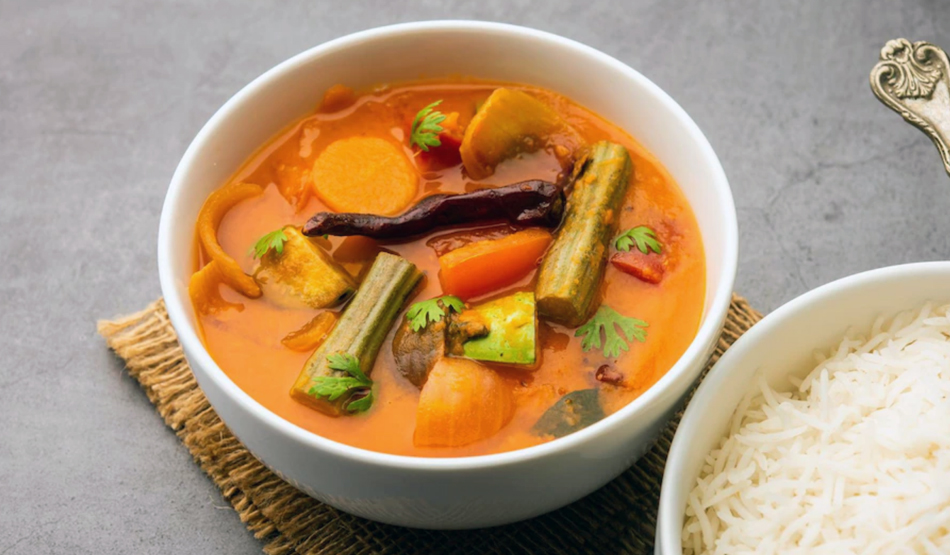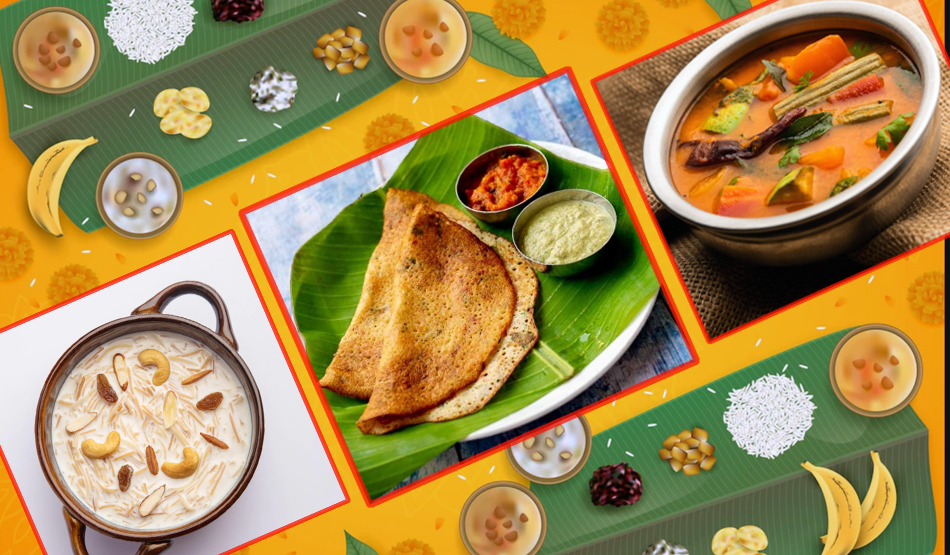Kerala have verities of foods. If you are traveling, do not forget to test some of thees dishes.
Five Spice Tea
This is a ‘tea’ that is an infusion of spices. A variation on the traditional method of imbibing single spice concoctions, this extremely stimulating drink does wonders for a head cold and blocked nasal passages.

Palappam
Made from rice flour, tasting of nutty coconut and sweet toddy, Palappam is normally eaten with a mild meat or vegetable stew. But this is bread that lends itself well to all kinds of curries, the slight sweetness complementing pungent gravies equally well. Palappam is normally made in a special iron pan, called appa chatti.
Puttu
A popular breakfast dish, Puttu is made in a cylindrical mould placed atop a pot in which water is boiled to provide steam for the Puttu to cook. A long stick is used to push it out of the mould. Puttu is enjoyed in two contrasting ways – either with a spicy curry of black chickpeas or with small yellow bananas and sugar.

Toddy/Tadi
The well-rounded lettering of kallu is the first Malayalam word you will probably learn to ‘read’. It’s a sign that is everywhere. Kallu (toddy) shaap (shops) dot the landscape like beacons; almost like lights guiding parched throats to watering holes. The local equivalent of the Western bar, these shops have one difference. They serve just one kind of liquor: Kallu, the local brew that most men prefer.
Pazham Pori
Pazham Pori is merely bananas enveloped in batter and fried. But the crisp outer coating and the soft insides make it the perennial favourite at teashops where customers like to bite into its sweet crispiness, along with a hot cup of tea.
PAYASAM
Payasam, Kerala’s favourite dessert, contains very simple ingredients. A lentil or cereal cooked in either milk or coconut milk, sweetened with sugar or jaggery, flavoured by cardamom and dry ginger and garnished with cashew nuts. The resultant concoction – deliciously tasty and extremely addictive – is seen as the only possible finale to a grand meal. However, despite its position as a preferred dessert, the traditional perception of payasam is as the food of the gods.

Sambar
Though Sambar is generally known for being the accompaniment to Idli or Dosa, it also goes well with rice and is the most common curry prepared in vegetarian households. In some homes, it is made the Keralite way, with shallots being the only vegetable and coconut added to the masala. However, this Sambar with its assortment of vegetables, is the established Tamil preparation served at traditional feasts.
Ada Dosa
A popular snack in the southern parts of Kerala, this Dosa is somewhat similar to the crispy Dosa that is the norm in most of southern India. However, Ada Dosa’s usual accompaniment of Aviyal gives it a distinct identity.
VARIETIES IN PATHIRI
In its essential form, pathiri – the bread of the Moplahs, is a wafer-thin preparation of rice flour that is roasted. The basic pathiri is Podipathiri, which is made from powdered and roasted raw rice. In a proportion of 1:2, hot water is mixed into the rice flour to form a soft, smooth dough. This is divided into small balls and rolled out into fine discs that are then roasted on a hot griddle. When done, ghee mixed with coconut milk is spread on the pathiri so that it does not dry out.

Kela Sasam
This extremely simple, sweet-sour- pungent combination of bananas and curd, is one of the many dishes served during a Konkani festive meal that is akin to the Kerala sadya.
Chips
You will see banana chips in bakeries and grocery shops – a deep sunshiny yellow, beckoning you from within its plastic covering. Similarly, solid blocks of black halwa glisten from behind display counters.
The best place to buy is where they are freshly made. Most of these are ramshackle holes-in-walls, but it is here that you can be sure of getting a packet of chips that goes “crunch” when you bite into them.

Halwa
Halwa is available all over India but Kerala’s is different; the flavour of coconut oil is predominant. The preparation is similar to making any fudgy sweet, hours of stirring. In this case, rice flour, coconut milk and jaggery is stirred in coconut oil till it gels together to become one firm mass. The colloquial term for the product is karutha (black) halwa but there is also a brand name for it, Calicut Halwa. So obviously, the best place to buy it is Calicut, also known as Kozhikode.
